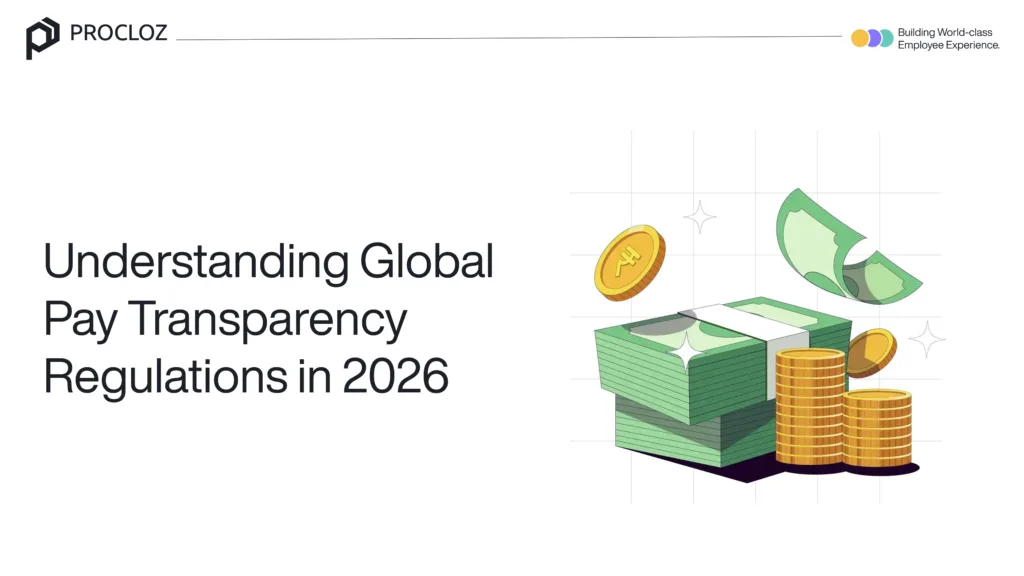The workplace has always been subject to human judgment. But in 2025, with organizations navigating digital transformation along with human decision-making, unseen cognitive biases such as the halo effect bias can have a considerable impact on results in hiring, promotion, and performance management. For companies in the US and Canada, where HR compliance is already delicate, neglecting this bias will cost both talent and dollars.
So what is the halo effect bias, and how can HR leaders overcome it?
What Is the Halo Effect Bias?
The halo effect bias is a mental shortcut in which a single dominant trait of an individual, e.g., charisma, confidence, or even looks, influences all the rest of our perception of their abilities. It skews honest appraisals in the workplace. For instance, a boss who is impressed with an employee’s excellent presentation skills may inadvertently attribute superior leadership to them even if there is no direct proof.
This bias is seemingly harmless in the beginning, but its effect accrues over time. It influences hiring decisions, promotions, and development opportunities. At this juncture, where companies are spending big bucks on payroll software and business automation, people make decisions with bias instead of data stands to cut down on gains.
The Impact of Halo Effect Bias in 2025
1. Hiring Decisions
Modern-day recruiters have at their disposal advanced web-based payroll services and applicant tracking systems, yet human judgment cannot be ignored. A candidate with an Ivy League pedigree or good communication skills might overshadow a similar candidate of equal quality who has real-world experience. Recent research posits that as many as 70% of US bad hires are attributed to unconscious biases such as the halo effect. For clients of small business payroll services who are unable to sustain high turnover, these errors are expensive.
2. Performance Evaluations
In 2025, corporations increasingly connect workforce planning and compensation with Performance Management Processes via corporate payroll services. If halo bias seeps into rating, it produces unfair pay disparities and lost developmental opportunities. Visualize a high-achieving yet introverted worker repeatedly omitted because they don’t possess the “charisma” their manager subconsciously esteems. Not only does it shrink morale but also raises the risk of attrition.
3. Promotions and Leadership Gaps
Promotions have long-term implications. A manager who promotes on impression instead of skill may find himself or herself with leaders who do not have the abilities to lead teams effectively. Eventually, this produces structural deficiencies in leadership pipelines. In states that are highly regulated like California and New York, where HR and payroll services are highly correlated with compliance, such deficiencies can also leave organizations vulnerable to risks of claims of inequity.
How to Fight the Halo Effect Bias
1. Create Specific, Unbiased Criteria:
Begin with precise job descriptions and uniform performance metrics. By linking assessments with fact-based criteria, organizations eliminate space for personal opinion. Procloz enables businesses to develop compliance-ready systems that link hiring, payroll, and performance information together seamlessly and minimize human error.
2. Train Managers to Identify Bias:
Bias training is not an option anymore. US employers in 2025 increasingly utilize outsourced payroll and EOR service providers to simplify workforce processes but must continue training internally. Managers are able to step back and ask themselves if they are making decisions based on data or perception when they know about the halo effect bias.
3. Encourage Feedback and Transparency:
Transparency builds trust among employees. Designing processes in which more than one stakeholder has input into hiring or promotion reduces the likelihood of error based on bias. Procloz incorporates this into its employer of record offerings, such that decision-making is not only unbiased but also thoroughly documented to ensure compliance.
Frequently Asked Questions: Halo Effect Bias Edition
1. How Does the Halo Effect Bias Impact Career Development?
The Halo effect bias tends to propel the careers of some workers ahead at the expense of others. At Procloz, we’ve witnessed how this skews talent pipelines. That’s why we structure payroll service for small business clients and corporations alike to synchronize pay and promotions with quantifiable achievements, not impressions.
2. Can the Halo Effect Bias in Hiring Be Reduced?
Yes. Although bias cannot be avoided, formalized hiring systems minimize its effect. Through the use of skills evaluations, objective criteria, and automated payroll services that tie compensation to position-specific standards, Procloz enables organizations to make objective and equitable hiring decisions.
3. Why Should Companies Care About Halo Effect Bias in 2025?
Because the future of work is data-driven. In a world where payroll processing services and AI-powered HR platforms are the norm, any decision that doesn’t take data into consideration dilutes your competitive advantage. US and Canadian businesses that value fairness and objectivity not only achieve regulatory compliance but also create more resilient, more engaged teams.
Final Thoughts
The halo effect bias has been around for a long time, but in 2025 its influence on HR and payroll decisions is more apparent than ever. From hiring to promotions, unchecked bias produces inefficiencies and inequities that no level of payroll outsourcing services can correct alone.
At Procloz, we are committed to merging employee empowerment with compliance-based systems. Whether you are a startup looking for small business payroll services or a multinational investigating professional employer organization services, our solution blends technology and justice. By addressing hidden biases such as the halo effect, we enable businesses to develop a workforce strategy that is not only effective but also just.
If your company is prepared to make informed, bias-free decisions based on data, Procloz is ready to assist.




